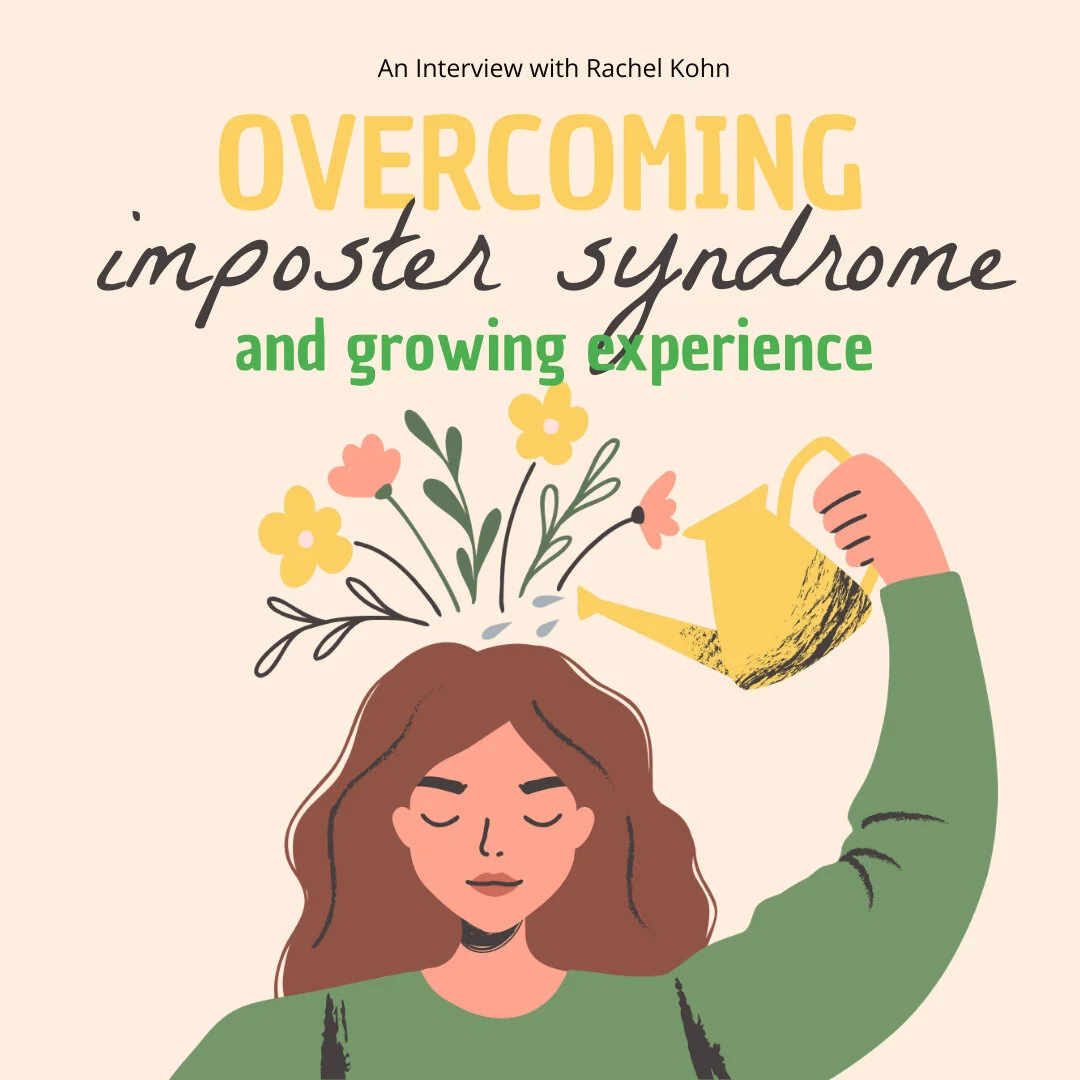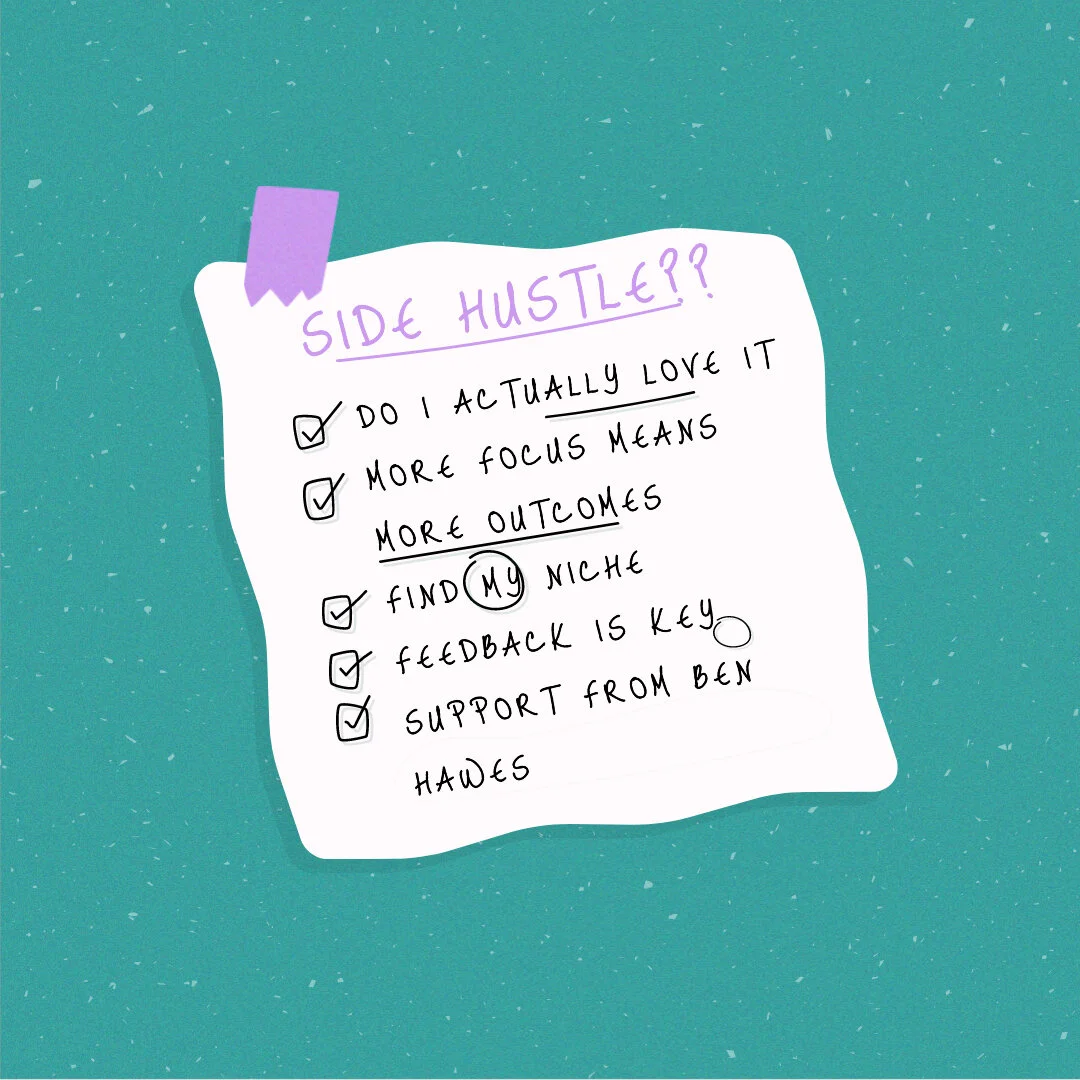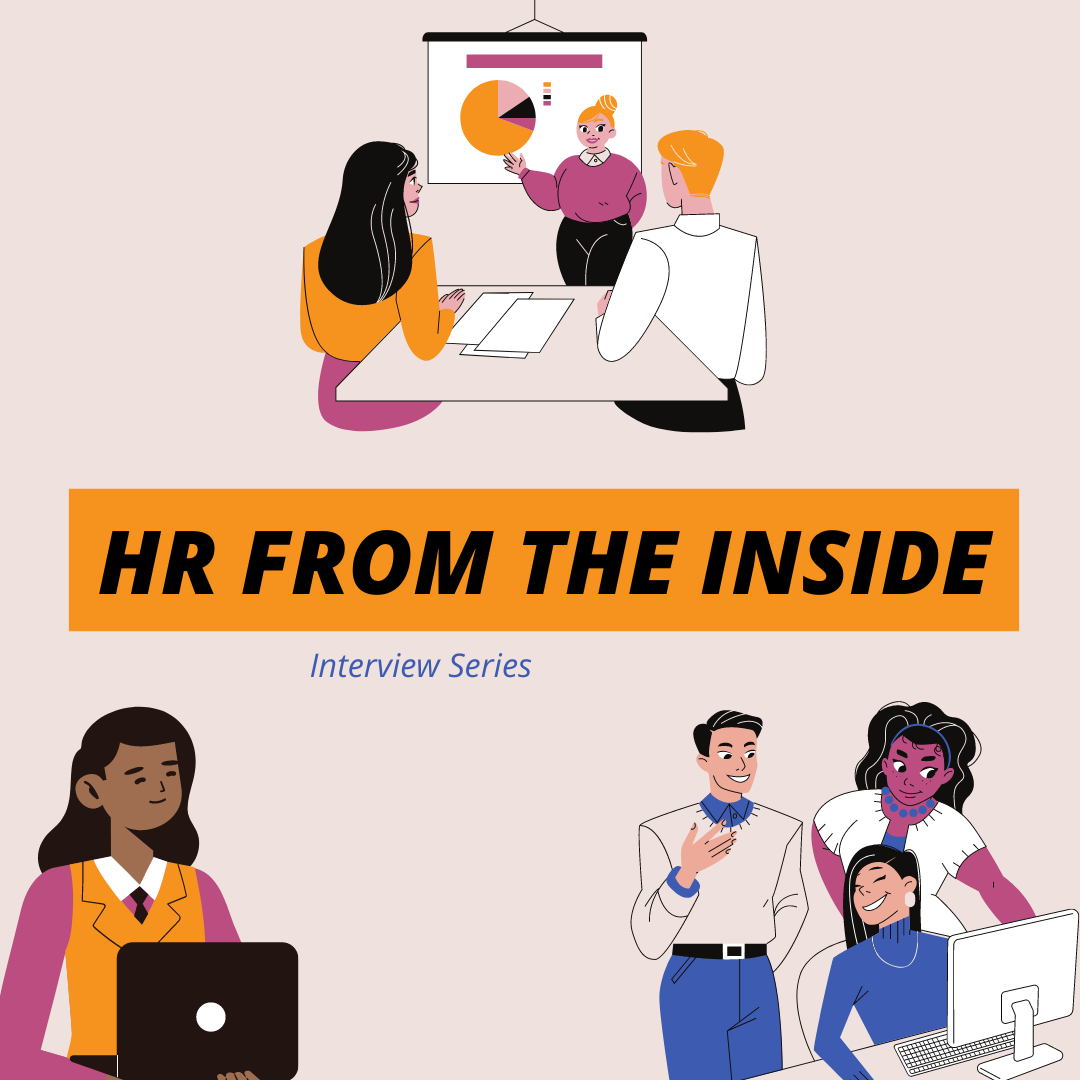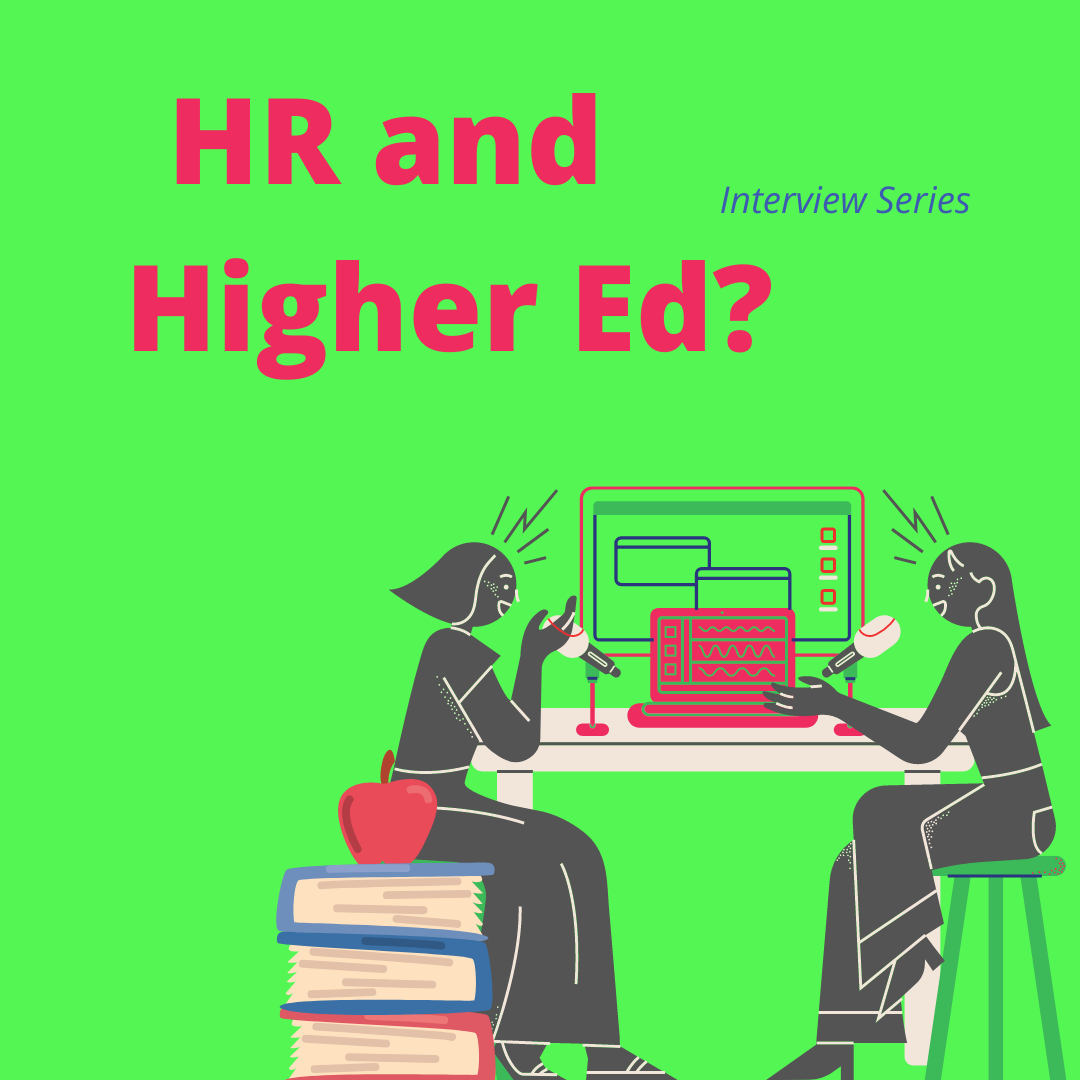From Googling to Experting: Don’t Let Imposter Syndrome Win
Working Through Imposter Syndrome In HR: A One-on-One Interview with Rachel Kohn at Alyce
Rachel Kohn is a recruiting rockstar, but she did not always see herself that way.
I sat down with Rachel (on Zoom, of course - how long have we been in this pandemic??), after a particularly hectic week of school projects, essays, and conversations about jobs post-graduation. Don’t get me wrong, I know I am only a junior in college, and everyone says that I have “time.” But you get it! The idea of not knowing where you will be after graduation is scary, and invites the good ol’ uninvited, inevitable imposter syndrome. You know, that fear of not being good enough to apply for a job, or perform excellent work anywhere. I kept trying to finish my assignments that week, but I kept getting clouded by the fears of what comes next, and if I’ll even be qualified to do anything by the end of next year. You may have experienced these jolts of uncertainty as well, and if so, let me validate you and say yes, they’re no fun.
So boy was I glad to have spoken with Rachel at the end of that week. She shared her story of how she got to where she is today, with hard work and talent, but not without imposter syndrome and failure along the way.
Rachel, the current Manager of Recruiting and Onboarding at Alyce, always knew she wanted to go into recruiting, starting in college as a tour guide and VP of Recruitment in her sorority. She loved the process of getting people excited about her university or organization, and by extension, this joy became her career.
After graduating college, Rachel dipped her toes into teaching, Higher Ed Admissions work, and eventually a career in Talent Acquisition in education/non-profits. Her main role was the Director of Talent Recruitment for Charter schools in Boston, until she landed herself an opportunity at the Bowdoin Group in 2017, up until February of this year when she transitioned to Alyce.
Rachel recalls her first day at the Bowdoin Group, an executive strategic recruiting company, coming from a career in recruiting in strictly education and non-profit settings. Rachel was immediately assigned to attend a meeting with a client, a software company at the Prudential Center. Rachel had no experience in the software industry, but she knew she could recruit. At that first meeting, Rachel sat quietly as her coworker (who ultimately became Rachel’s main mentor throughout her entire time at the Bowdoin Group) did the talking to the group of executives. She took furious notes on her laptop and wrote down any software-related words that she did not recognize or understand, in order to Google them later and familiarize herself with the technical topics and terms. She felt that all-too-familiar jolt of imposter syndrome: Rachel immediately jumped into something that she did not know she would be great at, and that was nerve-wracking.
Rachel is not alone in these feelings, which is very clear, considering that I just outed myself as a seasoned pro in imposter syndrome. I often feel like I hold myself back when something seems out of reach for me (and I get very overwhelmed when these feelings stop me from dealing with my actual, present responsibilities, like getting assignments done and enjoying college). But as I spoke to Rachel, I saw how the risk she took in entering that meeting required the confidence and recognition in her past experience, even if it did not directly correlate with recruitment at a software company.
While Rachel had not spent four years prior to her first day at Bowdoin coding and understanding the software world, she had spent her entire career on talent acquisition, and spotting out top talent based on roles needed at different schools and organizations. Rachel had already filled her toolkit with knowledge to recognize what leadership roles are required to revamp a company and understand why roles matter at any stage of the business.
This reframing of past knowledge and skills completely blew my mind. I have always heard of transferable skills, and I often preach this phrase to people who I advise in my college job. I say, “Oh, you have transferable skills! That will totally make you marketable.” But why don’t I actually believe it myself? I shoot potential job ideas down because I’m afraid I won’t be qualified for them, rather than seeing how my past experiences have actually helped me develop the exact skills to be qualified for these roles.
Rachel reminded me that while I may not have the direct experience, lingo, or vocabulary for a specific job or position, I do have the skills and talent necessary to become an invaluable resource. Rachel went home after her first day at Bowdoin and Googled those software terms, but she had the experience to learn how to become the expert for the different companies she recruited for.
Rachel’s story comes back full circle as she transitioned to Alyce, after nearly four years at the Bowdoin Group. Rachel was looking for a new position where she would see the long-term impact of her work in-house, rather than a client-facing consulting path. One day, Rachel found herself interviewing the CEO of Alyce for the Bowdoin Group’s podcast, and was struck by the values of the company. She saw the value of Alyce’s personalization of corporate gifts through sustainability, the power of choice, and the ability to donate the value of the gift to charity. She saw that long-term, results-driven work she had been craving. Rachel applied for the managerial role of recruiting and onboarding at Alyce, and started in February of 2021.
Oh, and remember when I said that Rachel’s first nerve-wracking meeting at the Bowdoin Group was with a software company? Well, guess what: Alyce is a software company.
Rachel now works as the leading recruiter for a software-based team, using language and lingo she had to Google four years prior on her first day. It was her imposter syndrome that indirectly led her to her dream role.
The potential (and inevitability) of failure will always be there, and that’s not a bad thing, I’m learning. An exciting and fulfilling life is all about trying things, failing at them, and then trying again. “Failing forward,” as Rachel puts it.
Imposter syndrome arises when we’re being challenged, but growth occurs when we beat our own insecurities through the results we put out. Rachel is a prime example of this: at the time at which we spoke, she had already hired and onboarded fourteen new people to Alyce since starting her new role, all within the first three months of working there. Trying to pick the right people who fit in with the team, while learning the ropes of the company oneself may feel daunting, but Rachel knows she’s an expert at recruiting, and knows she cares about Alyce and the longevity of the company. Self-doubt can creep up all it wants, but Rachel is proud of her experiences and skills which have made her qualified to rock at her role.
Her experience has proven her talent, and she will never let imposter syndrome win.
The next time I talk to any of my friends about applying for jobs or feeling unqualified for a position, I need to go into that conversation with Rachel’s attitude. Learn along the way and exude confidence, because that’s what everyone else is doing anyway. As long as I find the companies and communities that bring me purpose, excitement, and joy (even if most of the time), then I can overcome the feelings of imposter syndrome while I build my years of work experience.
If you would like to connect with Rachel, you can find her on LinkedIn.









